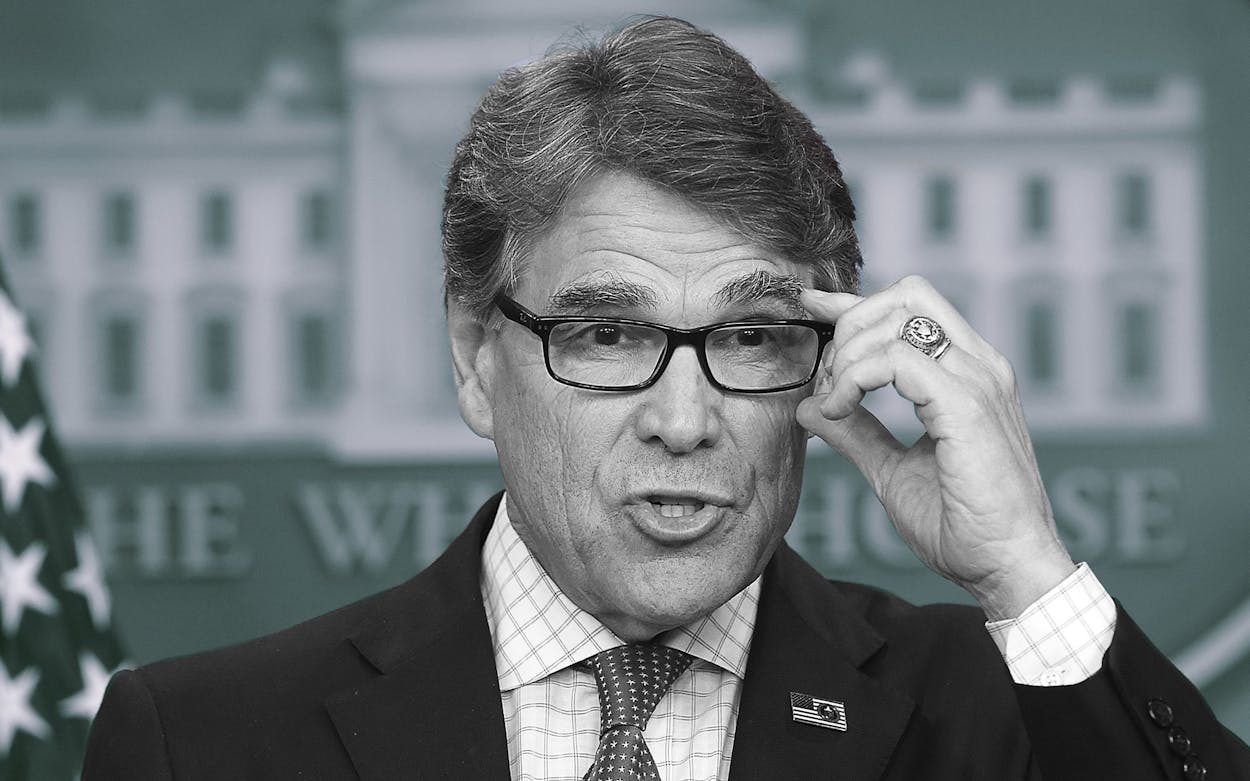More energy could mean fewer sexual assaults. That’s the sentiment of U.S. Secretary of Energy Rick Perry, who said on Thursday that expanding the use of fossil fuels in Africa could help lower the rate of sexual assault. During a discussion with “Meet the Press” host Chuck Todd and Axios CEO and founder Jim VandeHei, Perry recounted a conversation he had with a young woman he’d met recently:
I just got back from Africa, I’m going to finish up with this, because I think I heard a lady say there are people dying. Let me tell you where people are dying, is in Africa, because of the lack of energy they have there. And it’s going to take fossil fuels to push power out into those villages in Africa, where a young girl told me to my face, “one of the reasons that electricity is so important to me is not only because I’m not going to have to try to read by the light of a fire and have those fumes literally killing people.” But also from the standpoint of sexual assault. When the lights are on, when you have light that shines, the righteousness, if you will, on those types of acts. So from the standpoint of how you really affect people’s lives, fossil fuels is going to play a role in that. I happen to think it’s going to play a positive role.
Perry was in Capetown, South Africa, last week for a regional energy summit. He urged leaders to explore for fossil fuels and develop a “global clean coal alliance.” The former Texas governor was heckled by protestors, and he responded by arguing that access to energy saves lives. “It upsets me when some guy stands up and says, ‘What are you going to do, you’re killing people,’” Perry said. “No sir. You want to kill people you take energy away from them and you see how those north African countries will be treated.”
Sexual assault, and sexual violence against women in general, is a global issue. The World Health Organization estimates that worldwide, one in three women experience either intimate partner violence or sexual violence.
Perry did not specify which villages from the 54 African countries he was referring to, but a 2009 study by the Centre for the Study of Violence and Reconciliation from South Africa, noted that the country has “unacceptably high” levels of sexual assault and that more lights and cameras in public spaces would be a “quick gain” to addressing sexual assault in the population.
There are deeper issues behind sexual assault, including male sexual entitlement and structural discrimination against women. The issue has been in the news recently following allegations against prominent Hollywood producer Harvey Weinstein. Multiple women allege that he sexually assaulted them.
The study from Centre for the Study of Violence and Reconciliation makes the case that the prevention of sexual assault relies on “cultural changes around gender issues and sexual violence.” The WHO’s list for sexual assault prevention includes combining “economic empowerment of women with gender equality training,” promoting healthy relationships, reducing the harmful use of alcohol and changing cultural norms.
- More About:
- Energy
- Rick Perry








